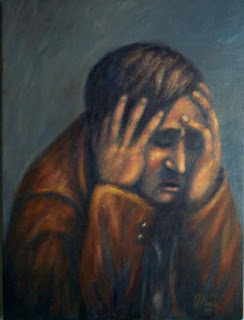..... if you can't do the time.
So, I guess it's in some way inevitable with modern cars, no training for 20-25 years and a certain complacency that we all seem to acquire with driving. I've been caught speeding. The social acceptability of this crime is clearly changing. Depending on context and era, certain crimes are deemed acceptable one moment and then completely unacceptable the next. At some point in this nation's history, killing a Scotsman would have won me many accolades right now - unless he was in downing street, I'm guessing there would be a public outcry. During my lifetime, I remember chuckling with Pop (my grandfather) about how he seemed to drive better when he'd had a couple of beers! This would be unconscionable in today's society only 25 years later. Thus I hang my head in shame, I'm not proud, yes I was clocked speeding.
Before I go on, there is a brief anecdote about the actual incident that, should your opinion of me not be on the floor already, will make it fall further. For fear of turning into
Ronnie Corbett I'll be brief.
I was heading to Basingstoke one morning, not far from my home, entering the village of Moulsford. This village has two schools directly on the main road, one of which Will went to for many years. Quite rightly the speed is 30mph, as I approached the village, as ever, I slowed to 30mph. When I rounded the slight bend I saw a mobile speed van parked in the lay-by. I checked my speedo, c. 30mph good, so I piously drove by with a self-satisfied grin on my face. I then proceeded to text as many contacts in my mobile phone as I could find who I knew would be driving through Moulsford. I have left this purposely ambiguous as to whether I was driving or not as the law on mobile phone usage has changed recently. Plausible deniability and self incrimination are not so comfortable bed fellows.
So it was with much swearing and protestation as to my innocence that I read the notice that I had been clocked doing 34mph on that very day!! After my ranting affirmation that I would take this to the European Courts for a ruling had subsided, eventually I was calm enough to discuss the document with Anne. There was an opportunity to opt for paying £60 to go on a "Speed Awareness Course". No need to tell the insurance company, no need to get 3 [more] points on my licence. It sounded too good to be true, just the catch of course - it was a 4 hour session. Still it had to be better than the points, right?
Actually, it was much better. Clearly, there have been many punters through the doors of this "voluntary" course. The course presenter was very good, he had heard it all, he knew what people were going to say before they said it, and he had all the answers. Interestingly I can honestly say the 4 hours flew past and I feel much better informed about all the nonsense that we carry around with us about speeding, speed cameras and road signage. I only hope that the shift in attitude that I have felt myself over the last few years has just taken a jump to a level that will help decrease road deaths. What was quite worrying was that many of the attendees when asked to select answers from a multiple choice quiz about the highway code, failed. If they were to take their driving test today, they would not pass.
Some thoughts:
In 2007 There were 247,780 road casualties in the UK. There were 27,774 serious (life changing) injuries and critically there were 2,946 fatalities. That is around 9 people every day die on our roads.
OK that's still better than the 70's proportionately. Today 3k deaths out of 34M drivers and in the 70's it was 9k deaths out of 12M drivers. We have improved from 9 deaths per 10,000 drivers to 1 death per 10,000 drivers but I don't think we should get complacent, that is still 9 people dying per day with the highest proportion of child deaths in Europe.
When the police attend an accident they have to choose from 54 categories as to what they think the cause of the accident is. 25% have excessive speed as the primary choice. Over 75% have it as one of the top 3 reasons. Speed is a major cause of accident and therefore death on the roads.
Roads are classified as Urban, Rural or Motorway there are some counterintuitive accident and death rates associated with this. Where do accidents occur? Motorway 4%, Rural 25% and Urban 71%. Where do people die? Motorway 6%, Rural 54% and Urban 40% The high rates of accident are simply related to the times that you are required to make a decision, on a motorway its rare in the town its common. When we make decisions we are prone to errors. The high rates of death in the town are the pedestrians, children and cyclist we kill. On the rural roads it's just the myriad inanimate and animate objects that we are able to hit at high speed.
Conclusions:
Attitudes to speeding are changing - mine most definitely has, your tax payers contribution to my course has paid off. Education and training surrounding driving is woefully inadequate - we should all be electing to do this type of course. The driving test and maintaining your knowledge of the highway code should be tested much more stringently and regularly.










































